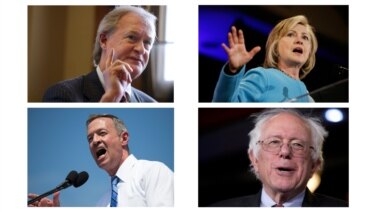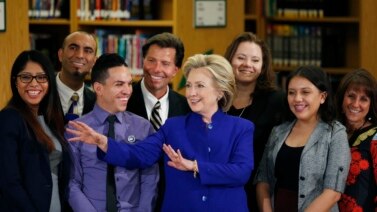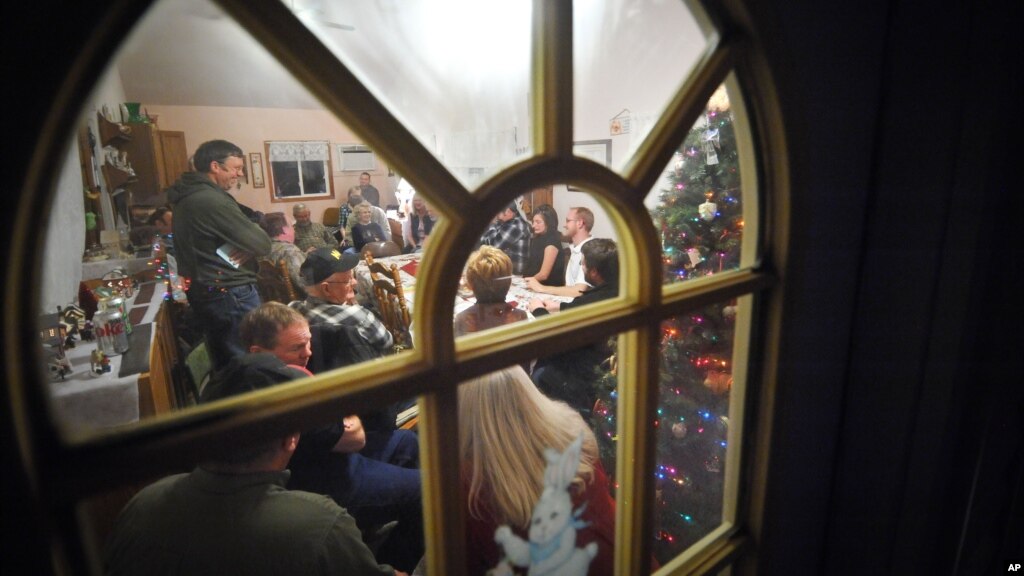
Every four years Americans go to the polls in November to pick a president. Americans will elect the next president in November of 2016. Although the election is still more than a year away, candidates have been announcing they are running for president.
All of the candidates are most likely trying to raise the large amount of money needed to make the run to the White House.
The candidates will need the money to campaign in a series of caucuses and primaries just to win the nomination of their parties. Here is how they work:
Iowa Caucus: first up to bat
The Midwestern state of Iowa likes to be known as first. It is the first state to vote in a presidential election. Both parties, Democratic and Republican, meet in caucuses to vote for the candidate they want for president.
Caucuses are more complicated than primaries. People who are registered in one of the parties gather for an evening of discussion and debate around the state. At the end of the night, everyone votes.
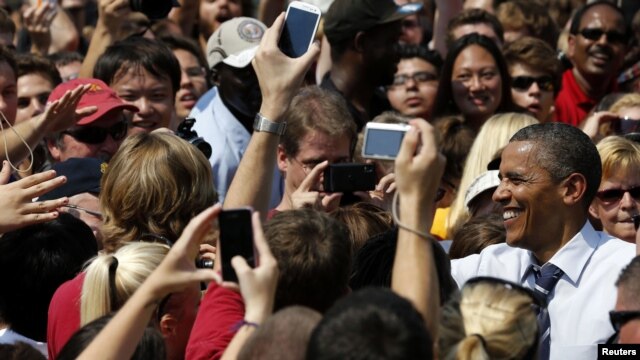
All the votes across the state are counted, and each party declares a winner. Candidates receive delegates based on the number of votes they have. The delegates go to the party’s convention later that year to choose the party’s presidential nominee.
Professor Larry Sabato, of the University of Virginia Center for Politics, says Iowa is important because it eliminates the weak candidates.
“So you don’t look to Iowa to see who wins, you really look to Iowa to see who loses badly, so they can be eliminated.”
Because it is the first state to vote, Iowa receives a lot of attention from both candidates and the press. Candidates start campaigning early. They drive all over the state to meet as many voters, and shake as many hands, as possible. Some even move their families to live in Iowa.
Individual voters get a lot of attention. National reporters interview them for their opinions. This has become an American political tradition.
The Iowa caucus became an important marker in the campaign back in 1972. Democratic Senator George McGovern did better than expected. He won the caucus and the attention of the media. Mr. McGovern went on to win the Democratic nomination for president. But he lost the national election in a landslide to Republican Richard Nixon.
In 1976, Jimmy Carter was a little-known former governor of Georgia and a peanut farmer. He spent a year campaigning in Iowa. His effort paid off with a big victory in the caucus and later the White House.
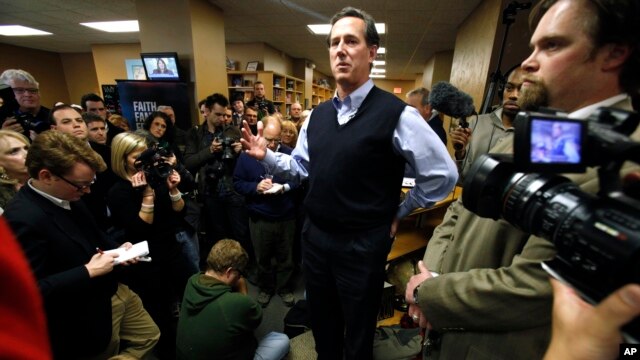
But these days, the person who wins the caucus does not always win the White House. Mr. Sabato says this is especially true for the Republicans.
“The winner in Iowa especially on the Republican side often does not win the nomination. The last time around, 2012 Rick Santorum won the Iowa caucus and of course he didn’t come anywhere close to being the nominee.”
Mr. Sabato explains that the Republicans in Iowa are more conservative than those in New Hampshire, the next state to vote.
New Hampshire Primary: first in the nation
By law, the state of New Hampshire always holds the first primary in the nation for a presidential election.
While the Northeastern state is small in both size and population, it has a large role in the election, because it is the first primary. Mr. Sabato says the results there are often different than in Iowa. He says New Hampshire voters often do pick their party’s nominee.
“Partly that’s because the New Hampshire voters I believe take their job very seriously in looking for the best possible candidate who can win in November. They don’t always succeed, but they try a bit better and harder than the Iowa caucus voters do.”
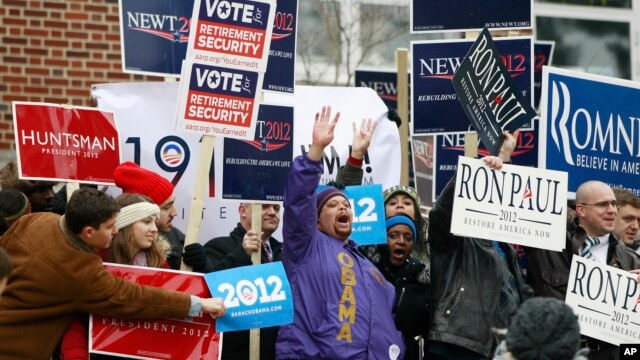
As in Iowa, the candidates on both sides work the state seeking votes, with cameras and reporters close by. They sit in coffee shops and stand outside offices and shake hands and answer voters’ questions.
Unlike the caucus model, New Hampshire voters go to polling places, where they vote privately in a voting booth.
The winner in New Hampshire gets momentum for his or her campaign. However, it is not a definite sign of winning their party’s nomination and then the White House. After all, there are many more states to campaign in across the country.
And the big primaries, one named “Super Tuesday,” will come later in February or early March. That is when many states across the country will hold their primaries and caucuses. This includes the larger states with many delegates.
Eventually, in the summer, both Democrats and Republicans will gather at their conventions to formally nominate their candidate to be the next president of the United States.
I’m Anne Ball.
Anne Ball wrote this story for Learning English. Hai Do was the editor.
Words in This Story
caucus – n. a meeting of members of a political party for the purpose of choosing candidates for an election
primary - n. an election in which members of the same political party run against each other for the chance to be in a larger election, like the presidential election
delegate - n. a person who is chosen or elected to vote or act for others
convention - n. a large meeting of people from each political party who gather to decide who their nominee will be
eliminate – v. to remove something, to get rid of something
landslide – n. an election in which the winner gets a much greater amount of votes than the loser does.
momentum – n. the strength that allows something to continue and grow stronger and faster with time

